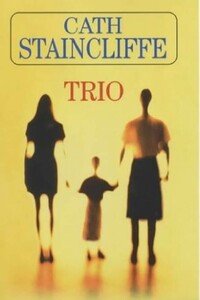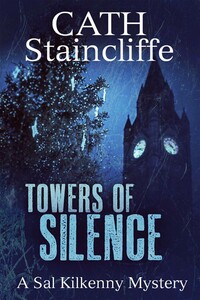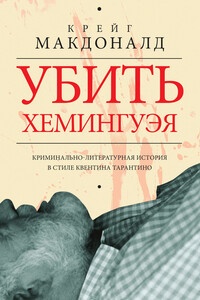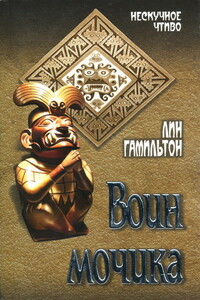‘I’ve got some lager.’ He re-emerged with a can and we sat together for a while as he came down from the match, swapping bits of news about the children and school, and agreeing what still needed to be done for Tom’s party.
That night, I dreamt about a knife. I’d lost it in the supermarket. Mrs Deason was asking for it: she wanted it back. Then the police burst in. They knew I was guilty. I reared awake in a state of panic. A dream. Just a dream.
I went quietly downstairs and made myself a cup of elderflower tea with honey. I needed to let the images ebb away. I hate it when aspects of the job invade my night’s sleep. It wasn’t as if things had got particularly hairy. Not like previous cases when I’d been threatened, assaulted, even shot at. Stupid dream. Be all right if it revealed any answers, but it didn’t.
OK, I admitted to myself, it’s the knife. Blame the knife. I have a fear of knives. I’d been stabbed once, here in this kitchen, sitting at this very table. Even being shot at hadn’t come close to the terror I’d felt as the man held the blade near my neck and whispered threats. Spittle on his lips…
I resisted the impulse to jump up and try to run away from the fears. Instead I practised the exercise I’d been taught, playing out the memory, letting it run to the part where he raised his arm, then changing the outcome. I was strong, stronger than him; I grabbed his wrist, wrested the knife from him, broke it in my bare hands, led him away, handed him over to the custodian at the door. I went through it again, and by then I was sleepy enough to return to bed.
I felt a flash of irritation with the dog down the road, who began to bark as soon as I turned off my light. I worked out that it had been eight days since I’d seen Victor Wallace and started to work on the case. All that time for my fears about knives to surface. Not bad, eight days. was making progress.
I was nearly off when a taxi came clattering down the road and there was much slamming of doors and jovial farewells. But soon it was quiet again.
And then it was morning.
Something happens to the clock between getting up and the time we have to leave for school. I never actually see it happen, but instead of ticking neatly round minute by minute, it takes great leaps from one figure on the dial to one across the other side. Even more unnerving is the fact that this erratic behaviour is synchronised with all the digital timepieces in the house.
One moment we’re making toast, the lunches are packed and there’s loads of time, and the next we’re terribly late, Maddie’s lost her shoes and there’s Vimto leaking from Tom’s lunchbox.
Returning from school to my office I took ten minutes to drink a cup of coffee, check my mail and messages, come to terms with Maddie’s parting words: ‘I hate you, pigbum, you always make me late’ – and regain a reasonable pulse-rate.
My rent was due for the office. I wrote a cheque for the Dobsons and left it upstairs on their kitchen table. It was a modest sum; I certainly couldn’t have rented a shoebox for that amount from anyone else.
I rang Rebecca Henderson to check whether she had spoken to Debbie Gosforth as promised. She was out but her secretary Alison remembered typing and posting the letter the previous morning. She’d have got it by now. I’d collected the photos of the stalker and I put them in the folder with my other notes. They were adequate to prove that G had been loitering outside Debbie Gosforth’s house on that occasion. Not an offence as such. Neither was stalking, come to that, only if it could be proved there was intent to cause harm. Most stalking cases were prosecuted for other crimes, like malicious damage or assault. You could keep up a campaign of terror against someone for years and the law could do little about it. That was Rebecca Henderson’s worry, and Debbie’s. Mine was getting the man’s name and address as soon as possible.
I put the Gosforth file away and got out the Wallace one. I made notes on my meetings with Mrs Siddiq, Dr Khan, Zeb Khan and Mrs Deason. I have a system of dividing the page into sections. In the first I’d enter facts or alleged facts – what people said they had seen or done or heard, along with times and dates, that sort of thing. In the second section I’d enter anything I wanted to remember about that person’s attitude and opinions, their reactions and the impression they had made on me. In the final section I’d jot down all my own hunches and suspicions, questions that went unanswered and doubts I had. I’d allow myself to spin wild scenarios about what the truth might be.






